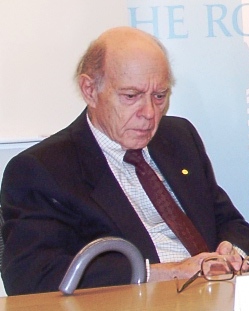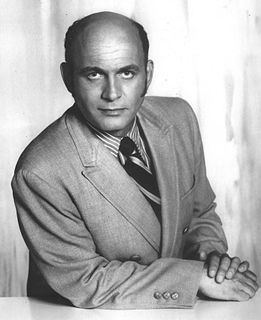A Quote by Irwin Rose
My Ph.D. thesis problem was to determine if the DNA content of rat tissues increased if there was B12 in the diet. This problem was suggested by my adviser based on the observation that thymine could replace vitamin B12 in a lactobacillus.
Related Quotes
When they were naming vitamins they must have thought there were going to be way more vitamins than there ended up being. OK let's name these: Vitamin A, Vitamin B... ok man slow down we've got a lot to cover here. B2, B3, B4, B5, B6, B12. Then they got to E and they were like 'We're pretty much done. We've got all those damn B's. This is embarrassing. Let's just skip to K and get the hell out of here.
Scientists can routinely predict a solar eclipse, to the minute, a millennium in advance. You can go to the witch doctor to lift the spell that causes your pernicious anaemia, or you can take Vitamin B12. If you want to save your child from polio, you can pray or you can inoculate. If you're interested in the sex of your unborn child, you can consult plumb-bob danglers all you want . . . but they'll be right, on average, only one time in two. If you want real accuracy . . . try amniocentesis and sonograms. Try science.
If we want to impact hundreds - or millions - of people, we have to do things differently. If we look at the problem as an infrastructural problem, we cannot make an impact because it requires a lot of effort. But when we convert this problem into a knowledge problem, suddenly the problem is manageable.




































